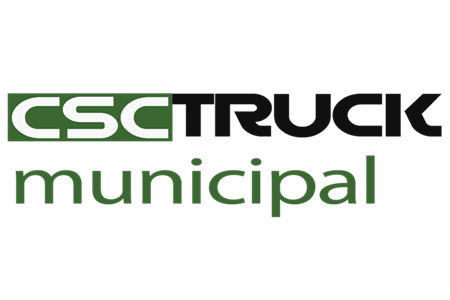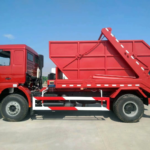The modern world is grappling with a waste crisis. As our population grows and consumption rates increase, the amount of waste generated has reached unprecedented levels. One of the most pressing challenges we face is how to manage kitchen waste efficiently and sustainably. Traditional waste disposal methods are no longer sufficient, and innovative solutions are needed. Enter the kitchen waste garbage truck—a powerful tool in the fight against waste challenges.
The Kitchen Waste Conundrum
Kitchen waste, often referred to as organic waste, includes food scraps, leftovers, peels, and other biodegradable materials. It constitutes a significant portion of our daily waste production. In most cases, this waste ends up in landfills, where it decomposes anaerobically, releasing harmful greenhouse gases like methane into the atmosphere.
Moreover, improper disposal of kitchen waste can lead to odors, vermin infestations, and groundwater contamination. These issues not only harm the environment but also affect the well-being of communities. Finding an effective way to manage kitchen waste is essential for mitigating the adverse effects of our unsustainable waste disposal practices.
The Rise of Kitchen Waste Garbage Trucks
Kitchen waste garbage trucks, also known as organic waste collection vehicles, are a novel solution to the kitchen waste conundrum. These specialized vehicles are designed to collect and transport organic waste from households, restaurants, and businesses to dedicated processing facilities. Unlike conventional garbage trucks that mix all types of waste, kitchen waste garbage trucks focus exclusively on organic waste, enabling more efficient and eco-friendly disposal methods.
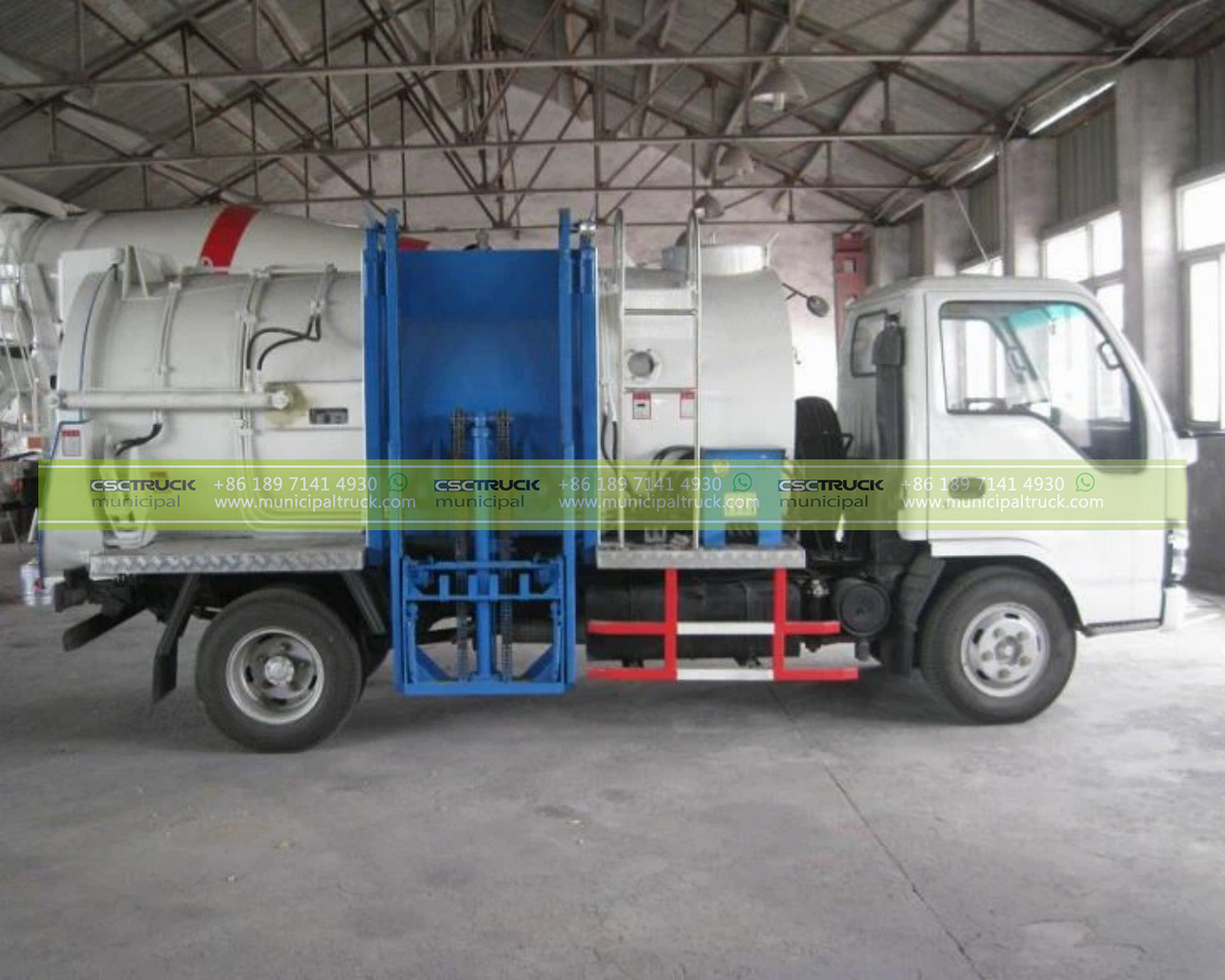
Key Features of Kitchen Waste Garbage Trucks
1. Separation and Collection: Kitchen waste garbage trucks are equipped with specialized compartments and storage containers that separate organic waste from other types of waste. This separation at the source ensures that the organic waste remains uncontaminated and suitable for processing.
2. Advanced Sorting Mechanisms: Some kitchen waste garbage trucks incorporate advanced sorting mechanisms to further refine the collected waste. This technology can remove non-organic contaminants, such as plastics and glass, enhancing the quality of the organic material.
3. Odor Control: To address the issue of unpleasant odors associated with organic waste, these trucks are often equipped with odor control systems. These systems help minimize odors during collection and transportation, making the process more pleasant for both waste collectors and nearby residents.
4. Efficient Routing: Kitchen waste garbage trucks are typically equipped with advanced routing software that optimizes collection routes. This not only reduces fuel consumption and emissions but also ensures timely and efficient waste pickup.
The Journey of Kitchen Waste
Once collected by kitchen waste garbage trucks, the organic waste embarks on a journey that ultimately transforms it into valuable resources rather than burdensome pollutants. Here’s how the process typically unfolds:
1. Collection: The waste is picked up from homes and businesses and loaded into the specialized compartments of the garbage truck.
2. Transportation: The waste is then transported to a dedicated organic waste processing facility. During transit, the odor control system ensures that unpleasant odors are kept to a minimum.
3. Processing: At the processing facility, the organic waste undergoes various treatments, such as composting, anaerobic digestion, or vermiculture. These processes break down the waste into valuable byproducts, including nutrient-rich compost and biogas.
4. Resource Recovery: The compost produced can be used to enrich soil and improve agricultural productivity, reducing the need for chemical fertilizers. The biogas can be utilized as a renewable energy source for electricity generation or as a clean fuel for vehicles.
5. Waste Reduction: By diverting kitchen waste from landfills, kitchen waste garbage trucks contribute to reducing the environmental impact of waste disposal. Landfill space is conserved, and methane emissions are significantly reduced.
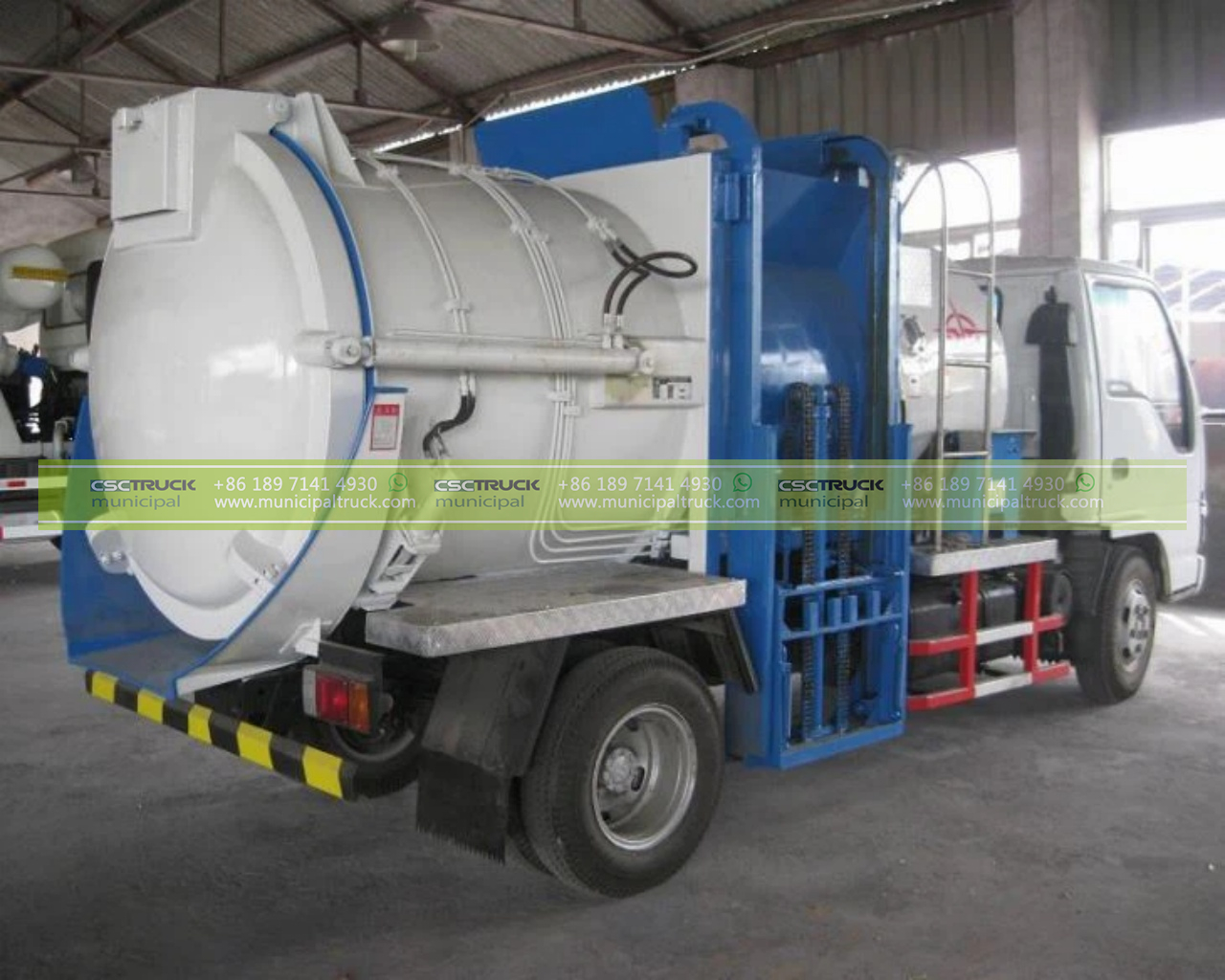
Environmental Benefits of Kitchen Waste Garbage Trucks
The adoption of kitchen waste garbage trucks comes with a multitude of environmental benefits:
1. Reduced Methane Emissions: Organic waste decomposing in landfills is a significant source of methane, a potent greenhouse gas. Kitchen waste garbage trucks help mitigate these emissions by diverting organic waste to more controlled processing methods.
2. Resource Conservation: The transformation of kitchen waste into compost and biogas reduces the need for virgin resources like peat and fossil fuels, promoting resource conservation and sustainability.
3. Improved Soil Health: Compost produced from organic waste is a valuable soil conditioner, enhancing soil structure and nutrient content. It reduces the need for chemical fertilizers, which can have detrimental effects on the environment.
4. Lower Carbon Footprint: Efficient routing, reduced landfilling, and the use of biogas as a clean fuel all contribute to lower carbon emissions associated with waste management.
5. Community Well-Being: By reducing odors, vermin, and groundwater contamination, kitchen waste garbage trucks improve the quality of life in communities.
Challenges and Considerations
While kitchen waste garbage trucks offer promising solutions to waste challenges, there are still challenges and considerations to address:
1. Infrastructure: Establishing dedicated organic waste processing facilities and the necessary infrastructure can be costly and require significant planning and investment.
2. Behavioral Change: Encouraging households and businesses to separate their organic waste requires education and awareness campaigns. People need to understand the benefits of proper waste sorting and disposal.
3. Regulations and Standards: Developing and enforcing regulations and standards for organic waste management is essential to ensure that the collected waste is processed correctly and safely.
4. Technological Advancements: Continued research and development are needed to improve the efficiency and sustainability of kitchen waste garbage trucks and processing methods.
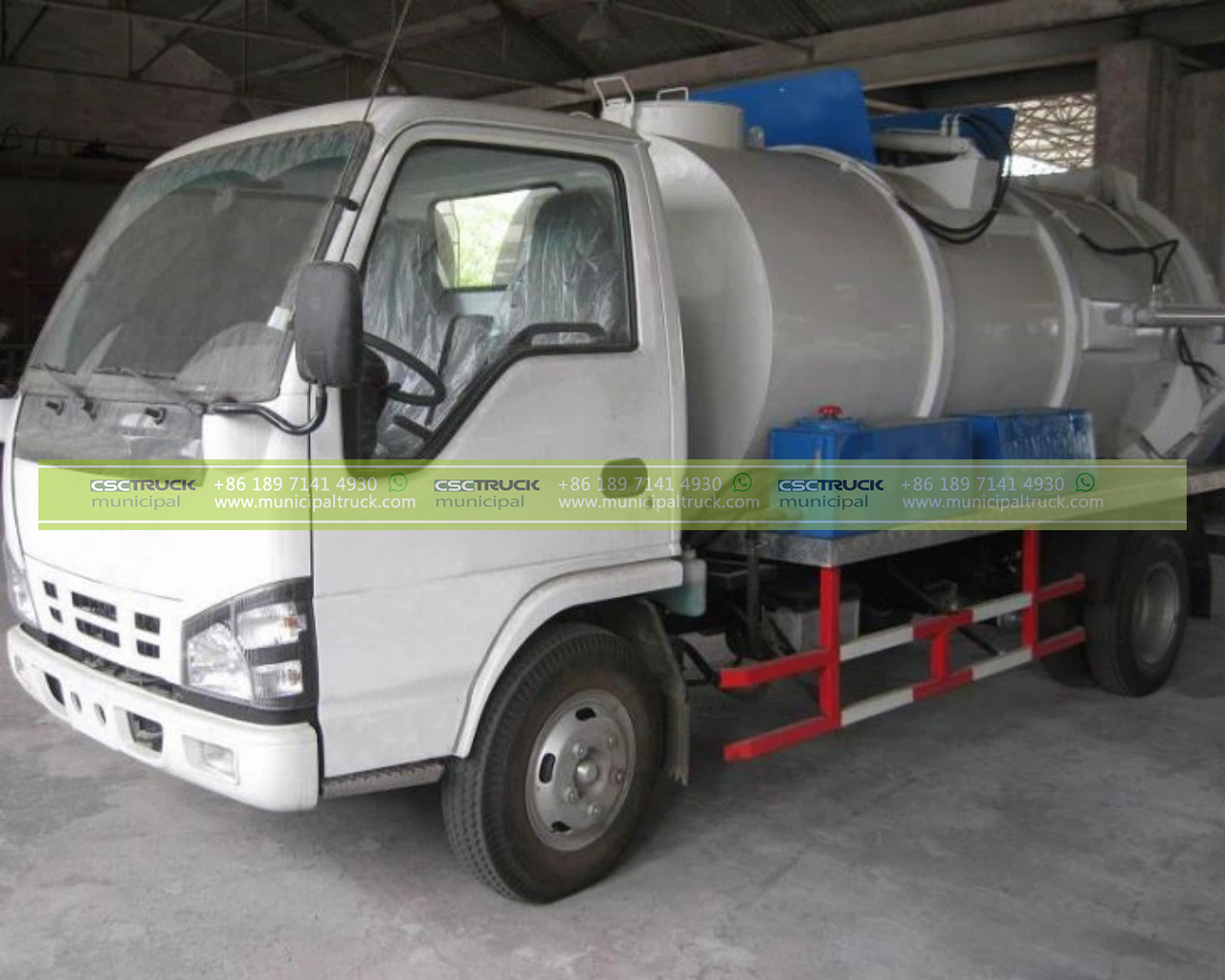
Conclusion
The kitchen waste garbage truck is a valuable tool in addressing the waste challenges that our modern society faces. By focusing on the efficient collection and processing of organic waste, these specialized vehicles help reduce methane emissions, conserve resources, and promote sustainability. As we strive to create a more sustainable and environmentally conscious world, the adoption of kitchen waste garbage trucks represents a significant step in the right direction. However, to fully realize their potential, we must continue to invest in infrastructure, promote behavioral change, and prioritize the development of innovative waste management solutions. Through these efforts, we can turn kitchen waste from a problem into a valuable resource for a greener future.
Contact us for this municipal truck or similar trucks: [email protected] Call us or What's APP us: +86 189 4292 3930
